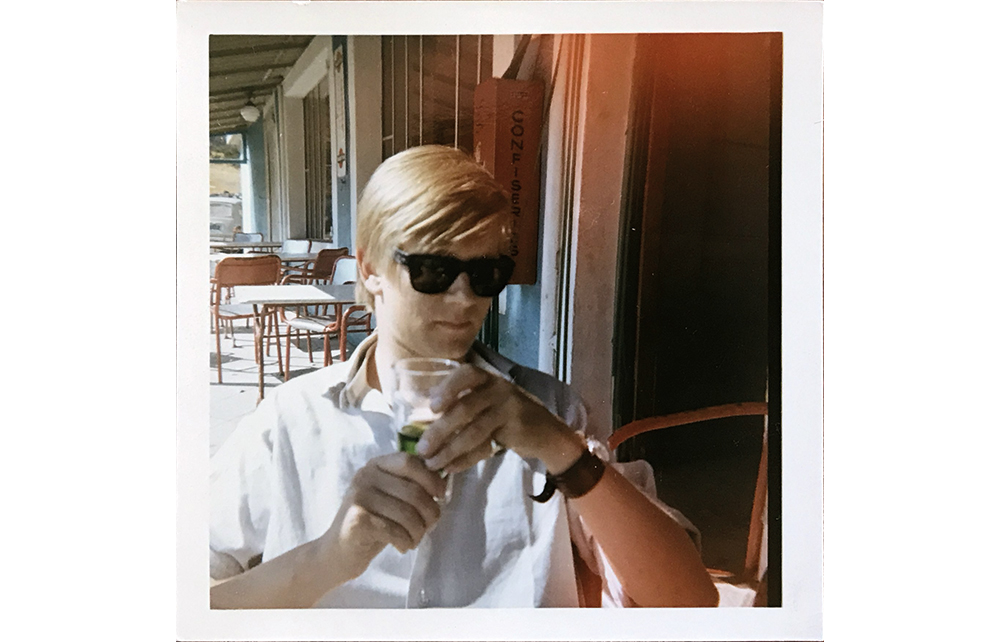Jeremy Catto’s first sexual experiences were with a greengrocer’s son, but he lost interest in the boy after discovering that his family used tea bags rather than tea leaves. As a youth he marched with the Oxford branch of the Committee for Nuclear Disarmament, but bearing aloft a banner calling for the restoration of the Bourbon monarchy in France. In middle age, he caused consternation by changing into his pyjamas on an overnight flight to Singapore: ‘But it’s my bedtime!’ he cried when there were complaints. Catto, evidently, was a fine example of that quick-witted type, with a dauntless and uncompromising way of making arbitrary choices, known as the English eccentric.
‘The best bankers are historians, not economists,’ said Catto. ‘They know how to think strategically’
David Vaiani says that he adored Catto, and it shows in this book. Early in this century he was a history undergraduate at Oriel College, Oxford, with Catto as his tutor. Now, six years after Catto’s death, he has collected the reminiscences of scores of successful pupils who had Catto as their mentor. The resultant volume is grateful, tender, funny and informing – but sometimes unavoidably repetitive.
Catto was born in 1941. As a pupil at Newcastle’s Royal Grammar School, he was already a witty, energetic charmer. At the age of 17 he converted to Catholicism, and at 19 he went with a scholarship to Oxford. He had a bright career at Balliol, despite a murky incident when he was caught shoplifting at Blackwell’s bookshop. His memories of his rustication meant that when, as Dean of Oriel, he had charge of college discipline, he was notably lenient with miscreants.
In 1961, he met an American philosophy student named John Wolfe, subsequently a successful businessman. They bought a house together in Northamptonshire in 1973, and eventually entered a civil partnership. But Wolfe, during a relationship lasting 57 years, seldom if ever set foot in Oriel. Very few of Catto’s Oxford friends knew of Wolfe until after Catto’s death.
Secretiveness about personal lives is nowadays thought reprehensible. But until the 1990s, most accomplished and effective Englishmen, particularly those in positions of leadership, compartmentalised their lives. They did not mix religion, work, sex, friendship or family in a hodgepodge that confused priorities and blurred demarcating lines. They knew that it is best to categorise and segregate people and emotions according to their worth. Catto had no truck with nonsense about everyone being of equal value or interest. He understood that compartmentalisation is indispensable for orderly, productive lives.
The propensity of people to attempt unsolicited emotional confidences, or to try to make their failures and shame into a matter of conversational interest, made Catto shudder. Although he was a boisterous gossip about public life, academic jobbery and the careerism of conceited asses, he never sullied himself with gossip about private lives, and disliked hearing it. He was largely immune to name-dropping, although he would recall how he had taught the rock musician Bryan Ferry both to swim and to drive. He also knew the pop star Marc Almond.
At dinners, as Vaiani quotes a friend saying, Catto always looked ‘mischievous and saucy, like a soft-living prince of the church’. Until middle-age he was a thin, debonair blond, who wore glamorous spectacles and bought clothes from King’s Road boutiques with such names as Granny Takes a Trip. Several friends compared him to the young David Hockney. In old age he had the ample and replete look of a jovial bon vivant.
Catto was a Fellow of Oriel from 1969 until 2006. As a medieval historian, he cherished a college that had been founded in 1326. He was a model of a now defunct type of Oxford don, hospitable in his college rooms and devoted to college life. In college business he was purposive and even tough, but also convivial, tactful, well-organised and generous with his time. ‘Blessings on toast,’ he would say when work went well.
He was playful, even outlandish, in tutorials and supremely attentive. He watched and listened to his pupils intently. They learnt from him how best to think for themselves by posing their own questions and then puzzling out the answers. In two pithy sentences he could say what other dons might take five minutes to explain unclearly. He teased his pupils, and coined his own campy phrases: ‘Ah, you wicked old thing! What deep gigglette and shriekino!’
The amassing of knowledge was not, for him, as valuable in university education as the building of character and of confident opinions. One of his former pupils, the parliamentarian Daniel Hannan, says that Catto treated the whole of university life as a symposium: he wanted intellectual stimulation to be constant and festive rather than restricted to dour formulaic tutorials. Catto taught his pupils to understand all sides, and to analyse all reasons. Some of his protégés call him a High Tory; but his political opinions were infused with pragmatism, self-awareness and wry humour, which are not High Tory traits.

‘I like it when my pupils run the world,’ Catto said. He preferred his favoured ones to become either bankers or diplomatists: it was best of all when, like Dickie Stagg, an ambassador turned Rothschild director, they were both. ‘The best bankers are historians, not economists,’ said Catto. ‘They know how to think strategically.’ In time he developed an astounding network ranging across universities, politics, diplomacy, the security services, high finance, literature and the performing arts.
The quotations from Stagg himself, from Hannan particularly, from David Manning, Jonathan Sumption, Harry Mount, Christopher Tyerman, James Vallance White and Alan Hollinghurst are a garland treasury of insight into the nature of true education. Many former pupils mention the pink gins with which Catto plied them during tutorials. The heavy daily swilling of wines and spirits in this book, and flat jokes about hangovers and other drunken indignities, made me queasy. But sozzled enlightenment is preferable to the exam mill, spreadsheets, assessment data and safeguarding guidelines that immolate and sterilise university intellects today.






Comments